Going deep into his fascination with animals, Vito Romulo Puyat immerses himself in environmental conservation.
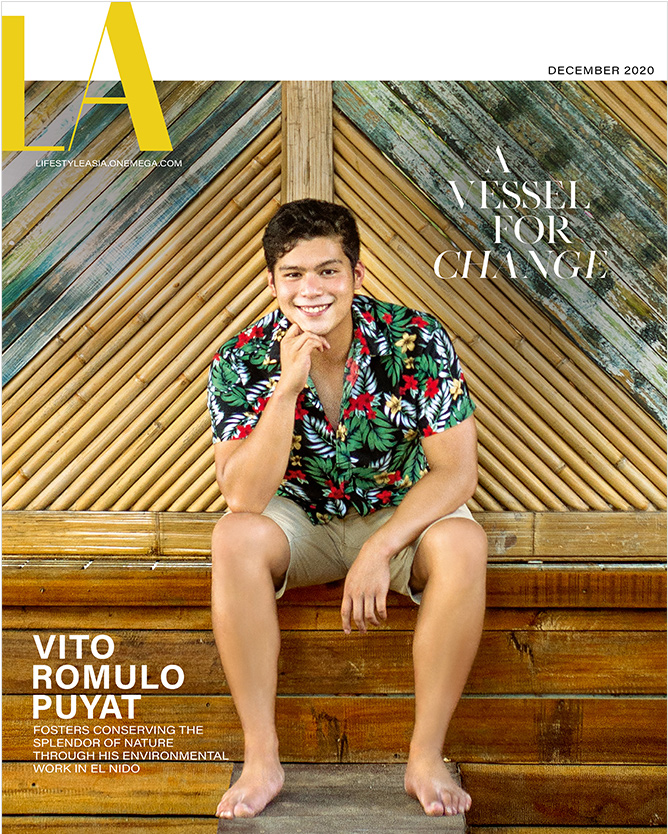
Fostering one’s interests typically begins in childhood and for Vito Puyat, his passion for the environment grew from going on nature trips with his family. “Our parents would always take the time to bring us to sites that had some natural features like a zoo, something that really highlights the local wildlife in place,” he recalls. He got fascinated with animals, particularly with the ecosystem of a coral reef. He describes the mesmerizing natural phenomenon that happens in a single reef—from little butterflyfish, rabbitfish, to Barracuda and Jack Pike feeding on polyps, algae, and smaller fish, respectively. Getting enamored by the beauty of nature led Vito to start his advocacy for the environment.
Before plunging into such a commitment, Vito studied at Newcastle University in the United Kingdom. He took up psychology and graduated with First Class Honors. Yet anyone who met him has one typical question: why did he end up in environmental work? His answer is simple and returns to his fascination with animals. “There are a lot of animals that we may not know [that] think and feel very similar with us…that really just drives me as well [to] help conserve and learn more about [them],” he explains. This ultimately drove him to return to the Philippines especially after receiving advice from one of his research advisors in college. “Everything that you do in the lab will have to have some sort of social relevance and impact. So, everything that you learn here, you’ll have to think about how that will change people’s lives,” he recalls.
Thus, it almost seems natural that years later, Vito now works as an Environmental Associate in El Nido. Covering research, data studies, animal rescues, and more, he appears to come full circle, diving into defending the rich marine life in the country. “I’ve always been very proud of the biodiversity of the coral reefs here in Palawan because it’s something really special,” he says.
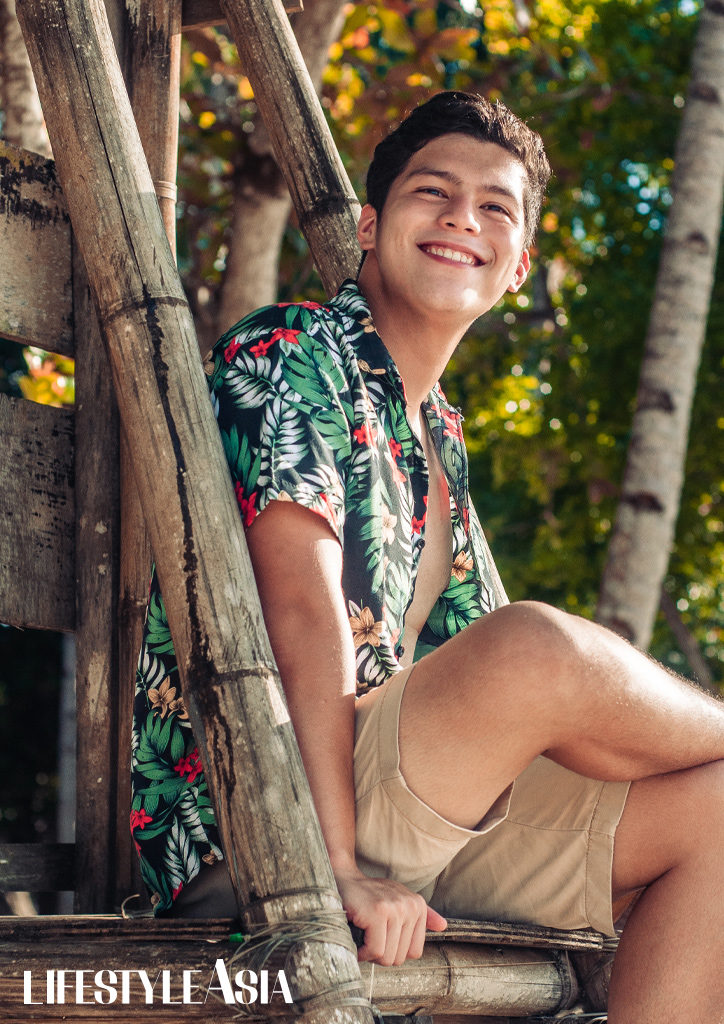
A day with wildlife
Vito admits he had a tough time adjusting to the work. “There were a lot of concepts that were still very foreign to me,” he reveals, citing environmental engineering and animal psychology as examples. However, his commitment to his advocacy compels him to learn and apply all these with much enthusiasm.
In the tropical shores of Lio where he presently works, a typical day begins with checking on their data files: “the consumption of the company so how much water, how much electricity is being consumed… that’s very important for us also to monitor our sustainability initiatives,” he clarifies. Fieldwork follows after—inspecting areas, compiling data from turtle watch patrols, and sometimes, animal rescues. One may expect rescues to entail marine creatures getting washed up on shore, but surprisingly, these are birds. “The birds might end up crashing on the windows of the shops here, or they might even be attacked by any sort of wildlife here,” he explains. So, their teams remain vigilant and quick to rescue the likes of pigeons and eagles that may have also been sick or injured.
Apart from bird rescues, their team patrols for turtle egg hatchlings along the beach as well. “We have them transported to specifically-made turtle hatchery box that we have here… because a majority of turtles are already of threatened status, so their populations are very low,” Vito says. “We could rescue them and make a program where we control the release as well to make sure that starting from their hatching up until they reach the water, [they] get there safely [to] improve their survival rate.”
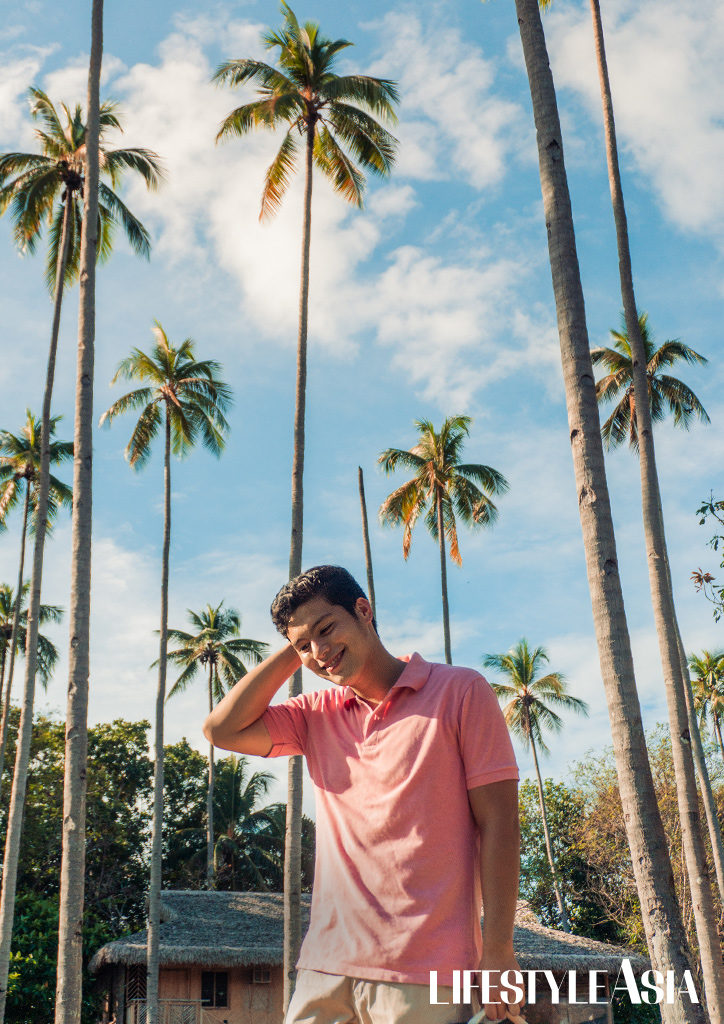
From the surface down
At a glance, his work may come off as an easy experience yet it goes deeper than that. One of his initial projects in Palawan is the comparative study of coral reef health. “What that involves is having someone hold a board that’s essentially pulled by a speedboat or some small vessel, and it’s very quick. What happens there is in every two minute-intervals, the person will analyze the coral reef and estimate how much is alive and how much is dead,” he elaborates. Apart from coral reef studies, he and his team do coastal cleanups and contribute to their educational program called “Be GREEN” or Guard, Respect, Educate El Nido. It teaches their company staff, their partners, and even tenants residing on the island the essentials like water and energy conservation, environmental legislation, and climate change.
The work is indeed broad that every aspect is significant and connected with other steps to ultimately conserve natural resources. Thus, once the state of nature in El Nido turns stable enough, Vito knows he will have to move on to another destination where he is needed. “I’ve also acknowledged that there will come a point where I may need to go somewhere else because there are some things that I can’t learn just staying here,” he says. He views it as a ‘take and give’ scheme, taking in what he can learn and applying it to another place.
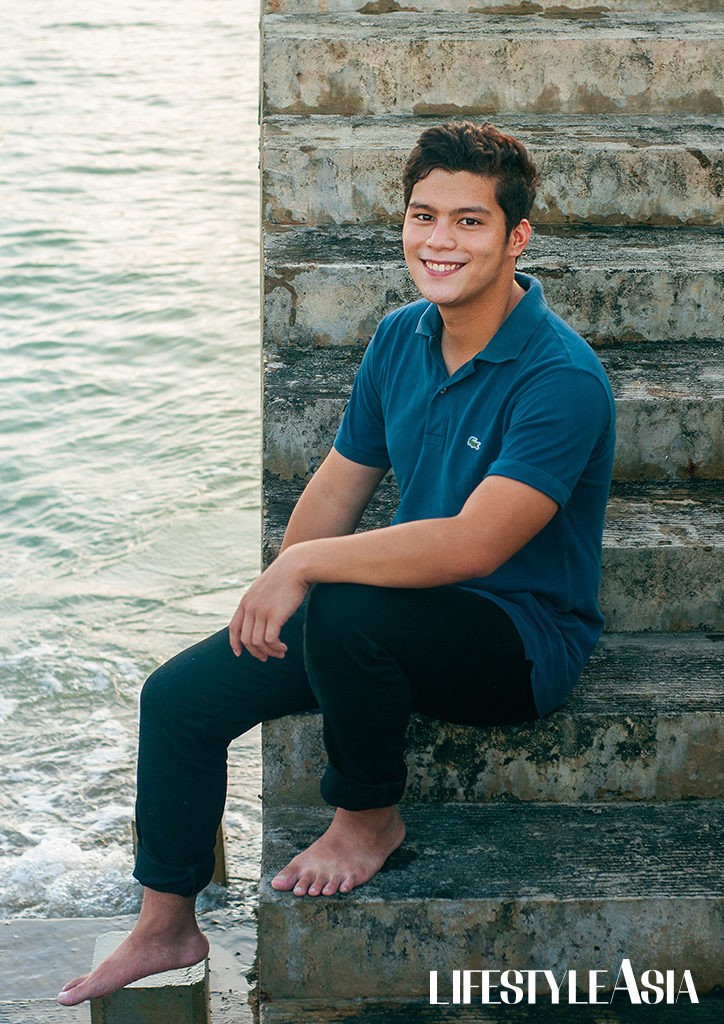
Staying afloat
When one’s passion turns into a job, separating personal life from work seems impossible. So, Vito makes it a point to relax as well. “No matter how much you enjoy the job and no matter how much you think you can last in a job, always set up a time for yourself to simply rest and do minimal things or do nothing at all,” he shares. He does it by reading, meditating, or watching videos on YouTube. As he is already at the beach, he would bask in the glory of nature as well. From swimming in open water, snorkeling, to bird watching, nothing beats the peace and healing he gets from these activities. “There’s no shame in that. Everyone needs rest and it’s for the physical and mental wellbeing,” he emphasizes.
The similar goes when the pandemic happened and he got stuck in Palawan for months and couldn’t return home. “A lot of that was just keeping myself physically active, mentally active so that I [won’t] ruminate so much on the stress as well,” adding, “I’ll focus on the things that I can do here before I [come home].”
Beyond looking out for his wellbeing, the bigger issue is how the hospitality industry got affected by the pandemic. What used to be a peak season filled with delightful energy from tourists were replaced by silence. “An Exodus of sorts just happened within the span of three days. So, it really just shocked everyone here,” Vito describes. People were forced to find other sources of income: some resorted to illegal activities like heavier fishing. “It’s bittersweet that there are some [coral reef] sites that are recovering, but there are also some sites that are really suffering under the pressure of other activities that people have resorted to,” Vito muses. Although challenges happened, El Nido is slowly opening up, adjusting to policies of the new normal to bring back the livelihood that was lost.
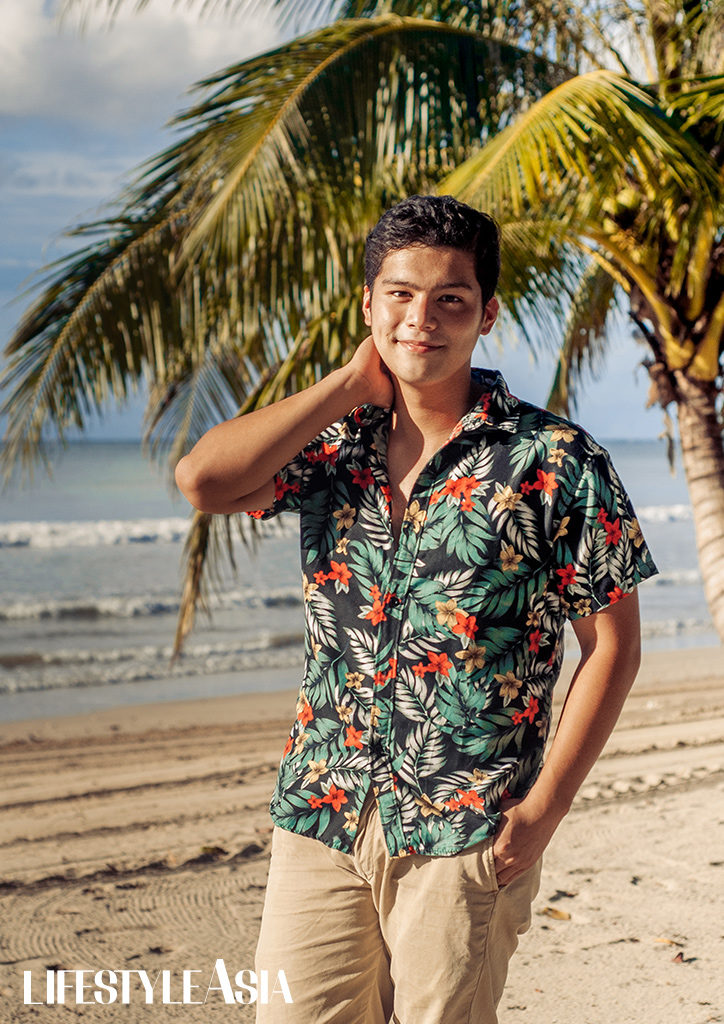
Amid the waves of crisis
Before the novel coronavirus outbreak, the world has been experiencing all kinds of natural catastrophes. In the country alone, we are hit with volcanic eruptions, typhoons, and earthquakes from time to time. The reality of climate change is highly alarming now, affecting everyone which is actually the key to addressing it, as Vito says. “Everything is interconnected and as such, that means that everyone in different sectors has a role,” he firmly says. This includes the government who sets an example by following their regulations, the non-government organizations (NGOs) that influence people to join initiatives, private corporations that create sustainable projects, and individual consumers that “dictate the demand of certain products, as well as the ones that do provide funding for all the initiatives,” Vito adds.
“It’s only through the cooperation of all of these different sectors when they come together that sustainability and environmental conservation can really occur,” he explains. This may seem like a long shot, demanding significant action from each group. Despite the difficulties, he remains enthusiastic about the future. There may be alarming issues like illegal fishing activities, Scarborough Shoal, and the controversial dolomite sand in Manila Bay yet Vito sees a different angle in all these. “What I really observed with these incidents is that we’re getting more Filipino people [who] are more vocal. They’re more aware, and they’re showing more concern about the issues,” he shares. “I think it’s significant that people are less afraid to express these opinions.”
Expressing concern and taking action on pressing matters are foundations of positive change. For Vito, it defines a meaningful life, “when you’ve known you’ve made a positive impact on others’ lives.” Similar to the wealth of natural resources in the country, he views luxury can be extended in many different things such as a wealth of knowledge, emotions, and passion. What matters the most is sharing this abundance with noble intentions. Vito claims it is all about how “priorities are still focused on making better lives for people [and] making the world better for the environment.”
Photos ANGELA MAGBUHAT
Art Direction MARC PAGDILAO and ROCHELLE PADILLA
Shot on location LIO BEACH, EL NIDO, PALAWAN





